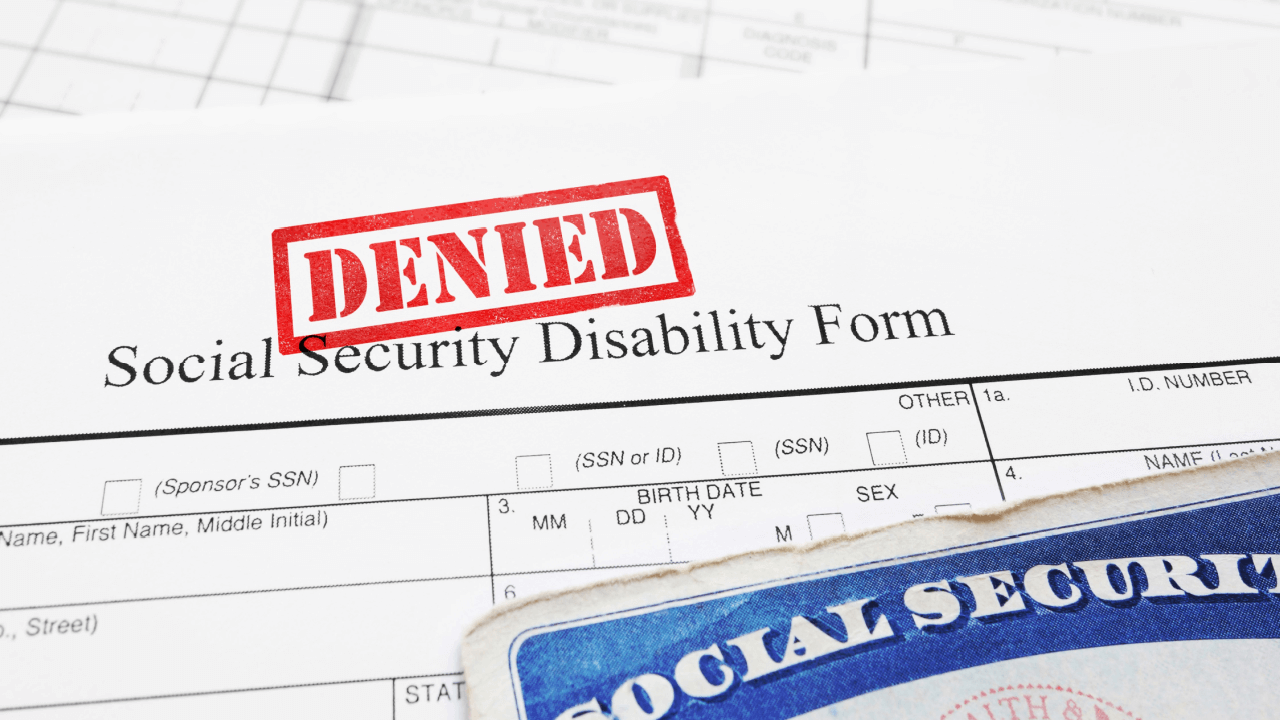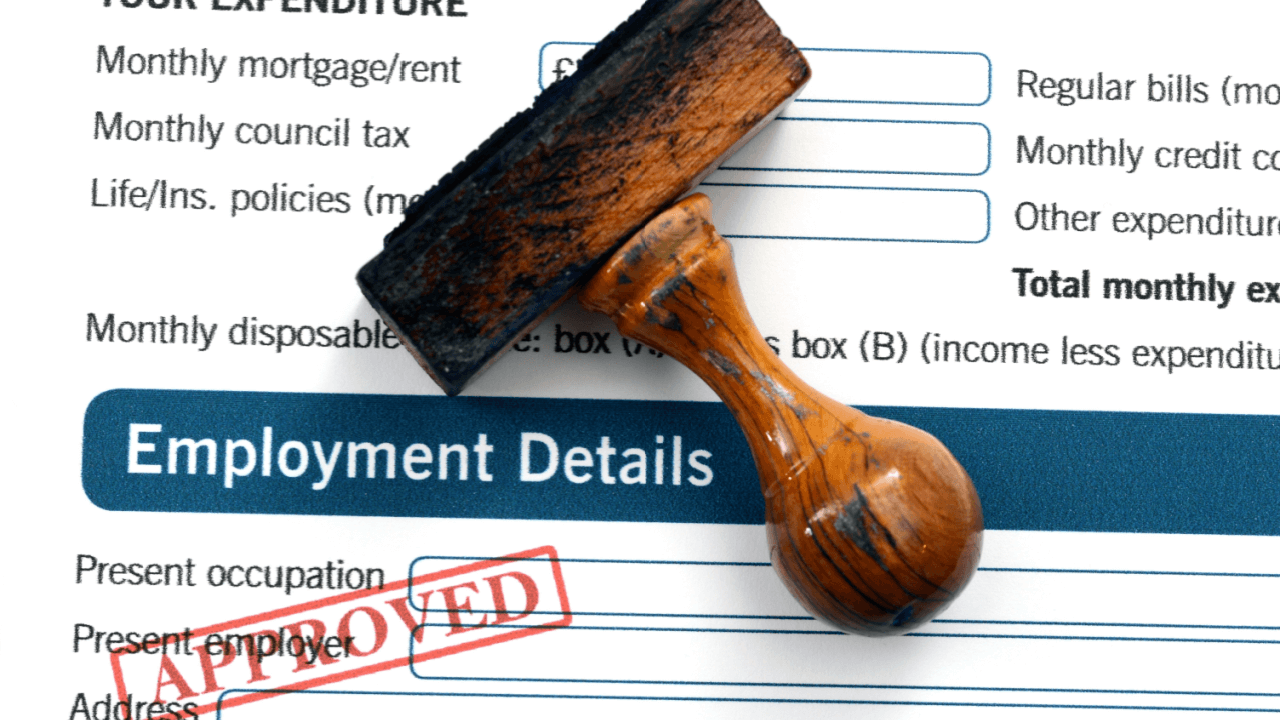
SSDI Reconsideration: Complete Guide to Your Disability Appeal
Understanding SSDI Reconsideration Basics
Appeal Process Fundamentals: SSDI reconsideration serves as the critical first level of appeal after initial claim denial, offering applicants a second chance to demonstrate disability eligibility. The Department of Veterans Affairs confirms that systematic appeals processes provide essential safeguards for disability determination accuracy across federal programs.
What Is SSDI Reconsideration?
SSDI reconsideration is a complete review of your disability claim by a different examiner who played no role in the original decision. This fresh perspective examines all previous evidence plus any new documentation you submit. Anyone denied initial SSDI benefits can request reconsideration regardless of denial reason—medical or technical.
Success rates remain challenging at 10-15% approval nationally, making reconsideration the most difficult appeal stage. However, this step is mandatory before proceeding to Administrative Law Judge hearings, where approval rates exceed 50%.
When to File for Reconsideration
The 60-day deadline from your denial notice date is absolute and non-negotiable. Missing this timeframe forces you to restart the entire application process, losing valuable back pay time.
File reconsideration when you have new medical evidence, believe SSA made errors in evaluating your case, or disagree with denial reasoning. Since there’s no filing cost and reconsideration preserves your appeal rights, most disability advocates recommend pursuing this option despite low approval rates.
SSDI reconsideration offers denied disability applicants a second chance to secure benefits through the appeals process. If you’ve recently received a denial letter, you’re not alone—over 65% of initial applications are denied, often for correctable reasons rather than legitimate disability issues.
This comprehensive guide provides expert strategies, required documentation, and realistic timelines to maximize your reconsideration success. You’ll learn proven tactics from disability attorneys, common mistakes that guarantee continued denial, and state-specific variations affecting outcomes. While reconsideration approval rates remain challenging at 10-15%, proper preparation helps preserve appeal rights for subsequent hearing stages.
Required Documents for SSDI Reconsideration
Documentation Requirements Guide: Successful SSDI reconsideration depends on submitting complete, accurate documentation that addresses specific denial reasons. The Office of Management and Budget requires standardized forms and evidence submission procedures to ensure consistent disability determinations across all states.
Essential Forms and Paperwork
Form SSA-561 (Request for Reconsideration): This primary appeal form must be completed accurately with all required signatures. Common mistakes include missing dates, incomplete contact information, and failure to specify appeal reasons clearly.
Form SSA-3441 (Disability Report – Appeal): Provides updated information about your condition since the original application. Detail any worsening symptoms, new diagnoses, or functional decline. Include specific examples of activities you can no longer perform.
Form SSA-827 (Authorization to Disclose Information): Required for SSA to obtain medical records from healthcare providers. Submit separate authorizations for each medical source to avoid delays in evidence collection.
New Medical Evidence Strategy
Additional Medical Documentation Importance: New evidence showing condition progression or previously unavailable records significantly improves reconsideration approval odds. Focus on obtaining documentation created after your initial application denial.
Efficient Record Collection: Contact medical providers directly rather than waiting for SSA requests. Many providers prioritize patient requests over third-party inquiries, reducing collection timeframes from weeks to days.
Healthcare Provider Collaboration: Request specific functional assessments addressing work-related limitations. Ask providers to complete Residual Functional Capacity forms detailing precise restrictions rather than general symptom descriptions.
Supporting Documentation Checklist
Employment Records Updates: Include any work attempts since your original application, even part-time or volunteer activities. Document why work efforts failed due to disability limitations.
Functional Capacity Evaluations: Professional assessments from physical therapists or occupational therapists provide objective functional limitation measurements that strengthen disability claims.
Third-Party Statements: Written statements from family members, friends, or former colleagues describing observed functional limitations carry substantial weight when they detail specific inability to perform activities rather than general observations about your condition.
Timeline Expectations During SSDI Reconsideration
Processing Schedule Overview: Understanding realistic timelines for SSDI reconsideration helps manage expectations and plan financially during the appeals process. The Government Accountability Office confirms that processing delays have significantly increased, making accurate timeline knowledge essential for applicant planning.
Step-by-Step Timeline Breakdown
Initial Filing to Acknowledgment (2-4 weeks): After submitting Form SSA-561, you’ll receive written confirmation that SSA received your reconsideration request. This acknowledgment includes your case number and assigned DDS office contact information.
Review Period Duration (6+ months average): Current processing times average 183 days (approximately 6.1 months) from filing to decision. This represents a significant increase from pre-2020 timelines of 3-4 months. The review period includes medical record collection, DDS examiner evaluation, and potential consultative examinations.
Decision Notification Timeline (1-2 weeks): Once DDS completes their review, you’ll receive written notification of the reconsideration decision within 10-14 days. Approval notices include benefit calculation details and payment start dates. Denial letters explain specific reasons and next appeal steps.
Factors That Affect Processing Speed
State-Specific Variations: Processing times vary dramatically by state due to staffing levels and caseload volumes. High-performing states like Iowa maintain faster timelines, while overwhelmed states may exceed 250 days average processing time.
Medical Record Availability Impact: Delayed medical record acquisition extends processing significantly. Missing records from closed practices, unresponsive providers, or incomplete treatment histories can add 30-60 days to review timelines.
Case Complexity Considerations: Complex medical conditions requiring multiple specialist consultations, rare diagnoses, or mental health evaluations typically require extended review periods. Cases involving consultative examinations add 4-6 weeks to standard processing times.
Tracking Application Status: Monitor progress through your my Social Security account online or by calling 1-800-772-1213. Regular status checks help identify potential delays requiring intervention.
Strategies for SSDI Reconsideration Preparation
Successful SSDI reconsideration requires strategic evidence building and systematic denial response rather than simply resubmitting previous documentation. Medical evidence addressing specific functional limitations is important for disability evaluations.
Strengthening Your Medical Case
Quality trumps quantity in medical evidence presentation. Focus on obtaining comprehensive Residual Functional Capacity (RFC) assessments from treating physicians that specifically detail work-related limitations. RFC forms documenting precise restrictions—”cannot sit longer than 15 minutes” versus “has back pain”—provide examiners with concrete functional parameters for disability determination.
Maintain consistent treatment patterns with documented medical visits every 30-60 days. Treatment gaps exceeding three months signal non-compliance to SSA examiners unless medically justified. If financial constraints prevent regular care, document this specifically with letters from providers or social services confirming inability to afford treatment.
Essential Medical Documentation:
- Updated diagnostic imaging (MRI, CT scans) showing condition progression
- Specialist consultations addressing specific denial concerns
- Mental health evaluations for psychological components
- Medication lists with side effects documentation
- Physical therapy notes documenting declining function
Addressing Previous Denial Reasons
Analyze your denial letter systematically, identifying each specific deficiency mentioned. Create targeted evidence packages addressing every denial reason individually. If denied for “insufficient medical evidence,” obtain detailed RFC assessments. If denied for “ability to perform past work,” document how condition changes prevent previous job functions.
Build comparative evidence showing functional decline since your original application. Before-and-after medical documentation demonstrating condition worsening provides powerful reconsideration evidence. Include specific examples of lost abilities: “Previously lifted 50 pounds; now cannot lift over 10 pounds per medical restrictions.”
Denial Response Strategy:
- Match new evidence directly to each denial reason
- Obtain updated testing addressing specific medical concerns
- Document workplace limitations preventing past relevant work
- Address any compliance issues with detailed explanations
Professional Representation Benefits
Many applicants choose to work with attorneys during the reconsideration process.
Disability attorneys work on contingency—no upfront costs, payment only upon approval. Attorney fees are capped at 25% of back pay or $9,200, whichever is less, with SSA handling direct payment from your first benefit check.
Attorney Advantages:
- Expert knowledge of SSA evaluation standards
- Established relationships with medical providers
- Strategic evidence presentation capabilities
- Professional communication with SSA personnel
- Higher approval rates across all appeal levels
Optimal Hiring Timeline: Engage representation immediately after initial denial rather than waiting for reconsideration failure. Early attorney involvement allows comprehensive case development and strategic evidence gathering before reconsideration submission deadlines.
Common Mistakes That Hurt SSDI Reconsideration Cases
Most SSDI reconsideration failures stem from preventable mistakes rather than legitimate disability issues. Understanding these common pitfalls can mean the difference between approval and another devastating denial. The Office of Inspector General reports that procedural errors account for more reconsideration denials than medical insufficiency.
Filing and Deadline Mistakes
The 60-day reconsideration deadline is absolute and unforgiving. Missing this timeframe forces you to restart the entire application process, losing valuable back pay time. SSA assumes you received the denial notice five days after the mailing date, making the actual deadline 55 days from when they mailed it.
Incomplete form submissions create immediate red flags. Form SSA-561 requires specific signatures and accompanying documentation. Failing to submit Form SSA-827 (Authorization to Disclose Information) along with your reconsideration request prevents SSA from obtaining updated medical records, essentially guaranteeing denial.
Critical Filing Errors:
- Requesting “new application” instead of reconsideration appeal
- Missing required signatures on forms
- Failing to update address changes with SSA
- Submitting forms to wrong SSA office locations
Medical Evidence Errors
Submitting identical evidence from your original application guarantees reconsideration failure. Examiners specifically look for new documentation showing condition progression or previously unavailable records. Outdated medical records older than six months carry minimal weight in disability determinations.
Treatment gaps exceeding three months without documented medical reasons signal non-compliance to SSA examiners. If financial constraints prevented treatment, document this with specific evidence rather than general statements about inability to afford care.
Evidence Documentation Failures:
- Submitting symptom descriptions without functional limitation assessments
- Missing specialist evaluations for complex conditions
- Incomplete treatment history timelines
- Failure to obtain RFC assessments from treating physicians
Communication and Follow-up Failures
Ignoring SSA requests for additional information creates automatic case closure. When DDS requests medical records or schedules consultative examinations, response within specified timeframes is mandatory. Delayed responses suggest non-cooperation and seriously damage case credibility.
Poor medical provider communication undermines evidence quality. Failing to inform doctors about disability applications means they won’t document functional limitations in medical records. Providers unaware of SSA requirements often focus on treatment rather than disability documentation.
Communication Red Flags:
- Not responding to SSA correspondence within 30 days
- Failing to attend scheduled consultative examinations
- Providing inconsistent information across different forms
- Missing follow-up appointments without notification
State-Specific SSDI Reconsideration Differences
Regional Variations Explained: While SSDI operates as a federal program, your state location significantly impacts reconsideration outcomes, processing times, and approval rates. The Department of Health and Human Services confirms that state-administered Disability Determination Services create substantial regional variations in disability adjudication practices.
Disability Determination Services Variations
State DDS offices handle all medical determinations for SSDI reconsideration, but operate with different staffing levels, caseloads, and internal procedures. Reconsideration approval rates vary dramatically by state—from 11% in Colorado to 26% in New Hampshire. Processing times also differ significantly, ranging from 180 days in efficient states to over 250 days in overwhelmed jurisdictions.
Staffing qualifications vary substantially between states. Texas requires disability examiners to hold four-year degrees with relevant experience, while Tennessee accepts high school diplomas. These educational differences directly impact decision quality and consistency across regions.
State Performance Variations:
- Highest approval rates: New Hampshire (26%), Kansas (53% initial)
- Lowest approval rates: Colorado (11%), Oklahoma (31% initial)
- Fastest processing: Iowa (97.9% accuracy, 33,000+ claims annually)
- Heaviest caseloads: California, Texas, Florida
Local Medical Consultant Networks
Each state maintains distinct medical consultant rosters with varying specialties and expertise levels. States like Massachusetts employ over 70 in-house medical professionals plus 300 external consultants, while smaller states rely on limited consultant pools. This affects the quality and timeliness of medical evidence review.
Regional healthcare provider relationships also influence consultative examination availability. States with robust medical networks can schedule CEs more quickly, while rural states may face delays in obtaining specialized evaluations.
Leveraging State Advantages:
- Research your state’s average approval rates and processing times
- Understand local DDS staffing and caseload levels
- Identify preferred medical specialties in your region
- Time submissions to avoid peak workload periods
- Consider transferring cases to family members in higher-approval states when legally permissible
What Happens After SSDI Reconsideration Decision
Next Steps Explained: Understanding your options after receiving a reconsideration decision is crucial for protecting your financial future and maximizing benefit opportunities. Whether approved or denied, specific timelines and procedures determine your next course of action.
If Your Reconsideration Is Approved
Benefit Payment Calculations: SSDI benefits include back pay covering the period from your established onset date minus a five-month waiting period. Monthly benefit amounts are based on your lifetime average earnings covered by Social Security. Maximum back pay is limited to 12 months, regardless of how long you were disabled before applying.
Medicare Eligibility Timeline: You automatically receive Medicare coverage after receiving SSDI benefits for 24 months. For ALS patients, Medicare begins immediately with benefit approval. Medicare Part A is provided at no cost, while Part B requires monthly premiums.
Ongoing Review Requirements: SSA conducts periodic continuing disability reviews to ensure ongoing eligibility. You must report any work activity exceeding substantial gainful activity limits ($1,620 monthly in 2025) and any medical improvement.
If Your Reconsideration Is Denied
Administrative Law Judge Hearing Options: You have 60 days from your reconsideration denial to request an ALJ hearing. ALJs approve over 50% of disability cases, making this your best chance for approval in the entire appeals process.
Timeline for Requesting Hearing: SSA aims for 270-day processing times for hearings, though actual wait times vary by location. You’ll receive at least 75 days advance notice of your hearing date.
Preparing for Next Appeal Level: Gather additional medical evidence, consider legal representation, and organize testimony from medical and vocational experts. Applicants with experienced attorneys have significantly higher approval rates at ALJ hearings.
Alternative Options to Consider
Supplemental Security Income Applications: If you don’t qualify for SSDI due to insufficient work credits, SSI provides need-based disability benefits with strict income and asset limits.
State Disability Programs: Many states offer temporary disability benefits while federal applications are pending. These programs provide interim financial support during lengthy appeal processes.
Vocational Rehabilitation Services: State VR agencies provide job training, education assistance, and workplace accommodations to help disabled individuals return to work when possible.
Expert Tips for SSDI Reconsideration Preparation
Professional Insights Shared: Disability attorneys and advocates have developed strategies for reconsideration preparation. These expert-level tactics focus on systematic evidence building, strategic medical provider collaboration, and professional case presentation.
Medical Provider Collaboration
Building strong relationships with your treating physicians is essential for reconsideration success. Schedule focused appointments specifically to discuss functional limitations, not just symptoms. Provide your doctors with copies of denial letters so they understand SSA’s specific concerns. Request detailed RFC assessments that quantify limitations—”cannot sit longer than 15 minutes” rather than “has difficulty sitting.”
Ensure all providers document consistent findings across your medical team. Contradictory statements between specialists can derail your appeal. Ask physicians to reference specific diagnostic findings when describing limitations, connecting objective evidence to functional restrictions.
Evidence Organization Strategies
Create chronological medical timelines showing condition progression since your application. Organize documents by provider and date, with cover sheets highlighting key disability evidence. Flag critical information with sticky notes for easy examiner review.
Develop evidence summaries that directly address denial reasons. If denied for insufficient medical evidence, create detailed indexes showing where each required element appears in your documentation. Present evidence packages that tell a clear story of disability progression.
Communication Best Practices
Respond to all SSA requests within specified timeframes—preferably early. Use professional, factual language avoiding emotional appeals. Keep copies of all correspondence and note communication dates.
Follow up monthly on case status using written requests rather than phone calls. Document all interactions with SSA personnel, including names, dates, and conversation details.
For comprehensive guidance on implementing these strategies and accessing additional expert resources, visit social security disability for detailed step-by-step instructions and professional support throughout your reconsideration process.
Frequently Asked Questions
1. How long does SSDI reconsideration take to process?
SSDI reconsideration typically takes 3-5 months to process, though this varies by state and case complexity. Some states process cases faster due to better resource allocation, while complex medical conditions may require additional review time.
2. Can I submit new medical evidence during SSDI reconsideration?
Yes, submitting new medical evidence is highly recommended during SSDI reconsideration. This fresh evidence can address deficiencies noted in your initial denial and strengthen your case significantly.
3. What percentage of SSDI reconsideration appeals are approved?
SSDI reconsideration approval rates typically range from 10-15% nationally. While these rates seem low, many successful cases involve new medical evidence or correction of procedural errors from the initial application.
4. Do I need a lawyer for SSDI reconsideration?
While not required, disability attorneys can significantly improve your SSDI reconsideration chances. They work on contingency, meaning no upfront costs, and understand how to present evidence effectively to reviewers.
5. What happens if I miss the 60-day SSDI reconsideration deadline?
Missing the deadline doesn’t end your options, but you’ll need to file a new initial application instead of appealing. This starts the process over and may delay benefits, so meeting deadlines is crucial.
Key Takeaways
- Act Quickly: File your SSDI reconsideration within 60 days of denial to preserve your appeal rights and avoid starting over with a new application.
- Gather New Evidence: Submit additional medical records, updated physician reports, and functional assessments that weren’t available during your initial application review.
- Address Denial Reasons: Carefully review your denial letter and specifically target the reasons cited by providing evidence that directly counters each concern.
- Consider Professional Help: Disability attorneys can significantly improve your SSDI reconsideration success rate and handle complex legal requirements while you focus on your health.
- Stay Organized and Responsive: Maintain detailed records, respond promptly to all SSA requests, and keep your contact information updated throughout the reconsideration process.


